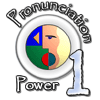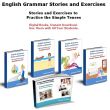Choosing What Tense to Use
by Eva
How do you determine what tense should be used when you write? When do you use the past, present and future tense? I'm really confused by this.
When discussing general issues, we use the present tense. I have serious problem with this, what exactly are issues that I should consider as "general"?
Can you please give me some advice on how to judge an issue as general, compared to issues that are not general?
I tend to mix tenses together in one sentence and it is wrong.
"I had a lot of work yesterday so I will call you later."
What are the rules of grammar during writing a sentence, a paragraph, even an entire article?
Thank you so much Ola. If you can help me figure this out I'd be very grateful!
Comments for Choosing What Tense to Use
|
||
|
||
Still looking? Search the site for exactly what you need using the site search box below.
Happy exploring!
Discover these Amazing ESL Materials!
 |
 |
 |
 |
 |
 |
 |
 |
 |
 |